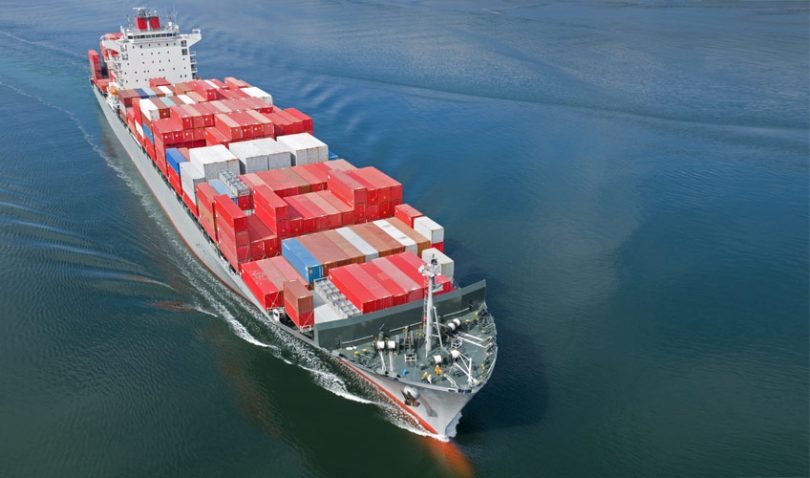Earlier this year, blockchain trade finance platform Marco Polo partnered with maritime technology firm Pole Star. Together they’ve developed maritime solutions for bunker fuel financing and funding for costs that have to be paid in advance, such as port agency payments and canal transit tolls.
Blockchain has already been used for bunker fuel, but for tracing fuel to ensure it complies with new International Maritime Organisation sulfur caps. The solution was developed by BunkerTrace.
What follows is an unedited interview provided by Marco Polo.
In January 2020, Pole Star and Marco Polo partnered up to enable the streamlining of maritime transactional processes and securing of sensitive data. The partnership provides a fully automated vessel sanctions screening solution to Marco Polo Network’s member banks, their corporate clients, and the extended trade ecosystem. It allows organisations to increase the capacity and velocity of their transactions, whilst facilitating rapid decision- making in trade finance.
We sat down with Simon Ring, Global Head of Financial Markets Compliance at Pole Star, and Jeff Handler, Global Head of Special Projects & Network Adoption Strategy at Marco Polo to discuss what this partnership will achieve in the current turbulent market.
Jeff, tell us a bit about Marco Polo and the work you do.
Marco Polo provides banks and corporates with easy to use, digital tools that make managing trade finance programs simpler and more cost effective. I oversee our Global Special Projects team, where we focus on identifying specific use cases where our propositions provide additional value and benefits over the options available today.
Simon, could you tell us a bit about Pole Star’s regulatory technology solution, PurpleTRAC?
In light of the current regulatory landscape, the ability to verify the location of a vessel and screen its ownership and management is crucial. PurpleTRAC allows users to configure their own unique compliance criteria, ensuring clear results in seconds and a compliance audit trail. Our hybrid-tracking solution incorporates automatic identification system (AIS) and Inmarsat data to provide the most robust and accurate geolocation data in the market today.
Which issues faced by the shipping industry do you aim to solve?
The shipping industry runs on razor-thin profit margins, creating an environment where sound working capital management is essential for businesses to survive and thrive. At the same time, there is a huge lack of trade finance and working capital programs tailored to meet the industry’s needs, leaving even the world’s strongest performing companies without readily available, easy to manage financing options.
How has COVID-19 impacted the industry?
90% of world trade travels by sea, however since the beginning of the pandemic, shipping and port activity have constricted. As stated by the International Chamber of Shipping, “in this time of global crisis, it is more important than ever to keep supply chains open and maritime trade and transport moving.” Moreover, the shift to working from home has ground many banks’ documentary trade to a halt, which at a time when access to capital is more important than ever, underscores the need for digitally native programs that allow banks and their clients to operate in a paperless world.
Jeff, are there any joint solutions in the pipeline to address these challenges?
Currently, we have three joint propositions available, which we feel will be of great benefit to the shipping industry. They include:
Marine (Bunker) Fuel Financing: Bunker fuel purchases constitute the largest operating expense for any ship owner and operator, with few financing options that work well for both buyers and suppliers. Our joint solution allows buyers and suppliers to access new working capital programs tailored to the unique transaction requirements, providing buyers with the ability to extend payment terms, and suppliers with early payments from the buyers’ banks.
Port Services Disbursement Account Financing: Companies must pay for port agencies weeks in advance of service delivery so that these agencies can cover the costs of 3rd party providers that deliver their services. By leveraging our Payment Commitment solution, ship owners can finance disbursement accounts with extended payment terms while ensuring that port agencies are paid prior to the collection of the supplier invoice.
Canal Transit Toll Fee Financing: Similar to port services, companies are also required to pre-fund expensive canal transits weeks in advance of service delivery. This creates a glaring working capital challenge. Our joint solution offers a way to finance these transactions and avoid pre-funding through a specialized program that is fully compliant with the business and system requirements of all parties involved.
So, what comes next?
The shipping industry is, and will remain, a critical component of the global economy. The importance of sound financial performance, as well as cost savings, risk mitigation, and efficiency gains associated with digitization, are now at the forefront. We are continuing to work with key stakeholders across the industry, and have a number of exciting global initiatives that we look forward to announcing shortly.






